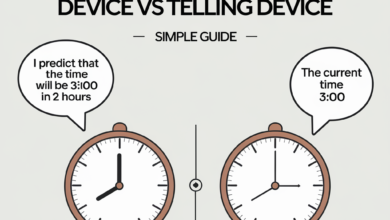Introduction
Overview of “FMyBrainsOut”
“FMyBrainsOut” has taken the internet by storm as a cultural phenomenon, embodying a humorous yet deeply relatable expression of frustration, fmybrainsout absurdity, or sheer disbelief. This quirky phrase has become a staple in online dialogues, often used to capture moments when reality feels too bizarre to process. Whether you’ve stumbled upon it in memes, social media captions, or as a hashtag, its presence is undeniable.
But what exactly does “FMyBrainsOut” mean? At its core, it’s a playful exaggeration, suggesting that someone’s brain is metaphorically exploding due to overwhelming information, ridiculousness, or humor. It reflects the chaotic digital landscape of modern life, where information overload and constant connectivity fuel a collective sense of cognitive fatigue.
Purpose of the Article
Understanding “FMyBrainsOut” goes beyond dissecting a viral trend. This article explores its origins, evolution, and societal impact. From its humorous undertones to the deeper psychological dynamics it taps into, “FMyBrainsOut” offers valuable insights into how we communicate and connect in today’s digital age.
The Evolution of “FMyBrainsOut”
Origins and Early Usage
The story of “FMyBrainsOut” begins in the vibrant world of internet culture. While its exact origins are difficult to trace, it’s believed to have emerged from online forums and meme communities where exaggeration is a hallmark of humor. Initially, it gained traction as a way to react to mind-blowing or absurd content, serving as a shorthand for “I can’t process this.”
The phrase quickly found its way onto platforms like Twitter, Instagram, and TikTok, where brevity and wit dominate. Early adopters of “FMyBrainsOut” used it to punctuate everything from bizarre news stories to hilarious personal anecdotes, making it a versatile tool for digital expression.
Cultural Adoption and Mainstream Attention

As “FMyBrainsOut” gained momentum, it transcended its niche origins to become a mainstream catchphrase. Popular influencers and content creators amplified its reach, often integrating it into viral challenges, reaction videos, and even branded content. Its catchy, self-deprecating tone resonated with a wide audience, cementing its place in the lexicon of internet slang.
Variants and Derivatives
Like all successful internet trends, “FMyBrainsOut” has spawned numerous variations. These include shortened versions like “FMB” or creative spins that adapt the phrase for specific contexts. Additionally, the phrase has inspired a range of memes, GIFs, and emojis, further embedding it into the fabric of online communication. Regional adaptations have also emerged, with non-English-speaking communities creating localized versions that maintain the essence of the original phrase.
The Psychology and Social Dynamics Behind “FMyBrainsOut”
Why It Resonates with Audiences
At the heart of “FMyBrainsOut” is a universal human experience: the feeling of being overwhelmed. Whether it’s a hilarious meme or an absurd news headline, the phrase encapsulates our shared reaction to the complexities of modern life. Its humor provides a sense of catharsis, allowing users to laugh at situations that might otherwise feel exasperating.
The relatability of “FMyBrainsOut” also lies in its versatility. It’s equally at home in casual conversations and public commentary, making it a powerful tool for expressing emotions that are difficult to articulate. This adaptability ensures its continued relevance across different contexts and platforms.
The Role of Social Media
Social media has played a pivotal role in the rise of “FMyBrainsOut.” Platforms like TikTok and Twitter thrive on trends that can be easily adopted and shared, and “FMyBrainsOut” fits this mold perfectly. The phrase’s viral potential is amplified by its ability to spark engagement through likes, comments, and shares.
Algorithms also contribute to its proliferation, pushing content featuring the phrase to broader audiences. The more people see and use “FMyBrainsOut,” the more it becomes ingrained in the cultural zeitgeist. This feedback loop ensures its longevity as a trend.
Generational Perspectives
Interestingly, the appeal of “FMyBrainsOut” varies across generations. For Gen Z, it’s a natural extension of their humor—ironic, self-aware, and heavily steeped in internet culture. Millennials, on the other hand, might view it as a fresh iteration of the exaggerated expressions they’ve grown accustomed to in digital spaces. Despite these differences, both groups find common ground in the phrase’s ability to encapsulate their shared experiences in a chaotic world.
Impacts and Controversies
Positive Effects
“FMyBrainsOut” has fostered a sense of community among internet users. By sharing their “FMyBrainsOut” moments, people connect over their mutual struggles and joys, creating a virtual support system. It also contributes to the evolution of modern humor, showcasing how language can adapt to reflect contemporary realities.
The phrase’s humorous nature encourages people to approach life’s absurdities with a lighter perspective. This ability to laugh at oneself and the world can be a powerful coping mechanism, particularly in stressful times.
Negative Aspects
However, not everyone views “FMyBrainsOut” in a positive light. Critics argue that its overuse dilutes its impact, turning it into yet another fleeting internet trend. Additionally, some perceive it as emblematic of a culture that prioritizes surface-level reactions over deeper engagement.
There’s also the risk of misunderstanding or misuse. In certain contexts, “FMyBrainsOut” might come across as dismissive or flippant, potentially alienating those who take issues more seriously.
Cultural Implications
On a broader scale, “FMyBrainsOut” reflects the societal challenges of navigating an increasingly complex world. It highlights the role of humor as a coping mechanism and underscores the importance of shared experiences in building digital communities. The phrase serves as a lens through which we can examine our collective response to information overload and rapid cultural shifts.
Conclusion
Summary of Key Takeaways
“FMyBrainsOut” is more than just a viral phrase; it’s a cultural touchstone that captures the essence of life in the digital age. From its humble beginnings in online forums to its widespread adoption across social media platforms, the phrase has become a symbol of shared humor and resilience. Its impact, both positive and controversial, offers a window into how we navigate and make sense of the chaos around us.
Looking Forward
As digital culture continues to evolve, “FMyBrainsOut” is likely to remain a relevant fixture, adapting to new contexts and challenges. Whether it fades into obscurity or becomes a timeless expression, its legacy will be a testament to the power of humor and relatability in connecting people across the globe.
FAQs
What does “FMyBrainsOut” mean in simple terms?
It’s an expression of being overwhelmed, often used humorously to describe situations that are absurd, hilarious, or mind-blowing.
How did “FMyBrainsOut” gain so much popularity?
Social media platforms, influencers, and viral content played a key role in spreading the phrase.
Is “FMyBrainsOut” just a meme, or does it have a deeper cultural significance?
While it’s primarily a humorous expression, it also reflects broader societal trends like information overload and shared digital experiences.
Why do people find “FMyBrainsOut” relatable?
Its humor and versatility resonate with people’s everyday frustrations and joys, making it universally appealing.
What are the criticisms of “FMyBrainsOut”?
Overuse, potential for misunderstanding, and its perceived shallowness are some common criticisms.
Can “FMyBrainsOut” be considered timeless, or will it fade away like other trends?
Its future depends on how it adapts to changing cultural contexts, but its impact on digital culture is already significant.
You May Also Read: https://ventsbuzz.pro/passages-malibu-logo/




